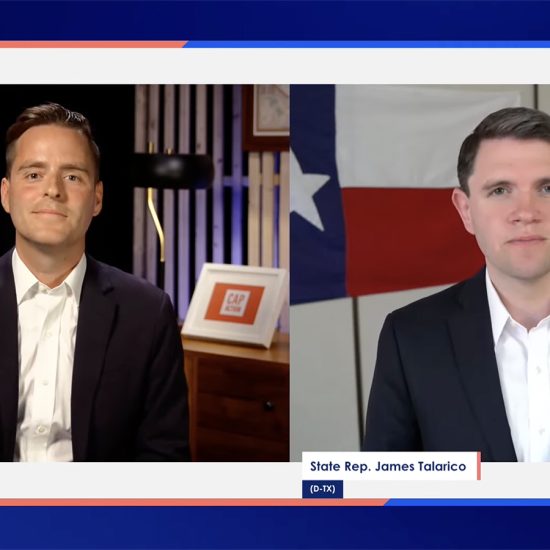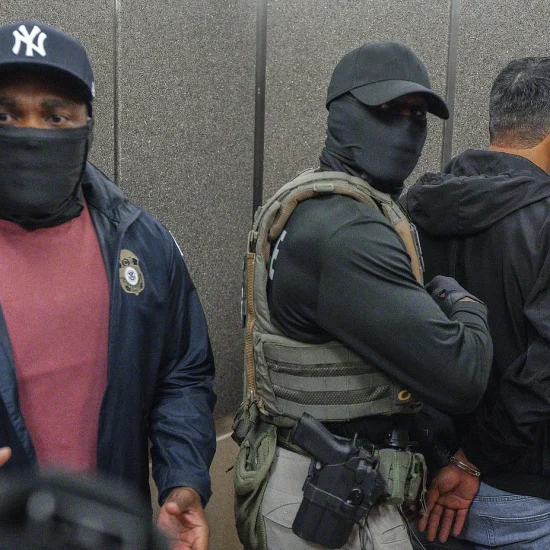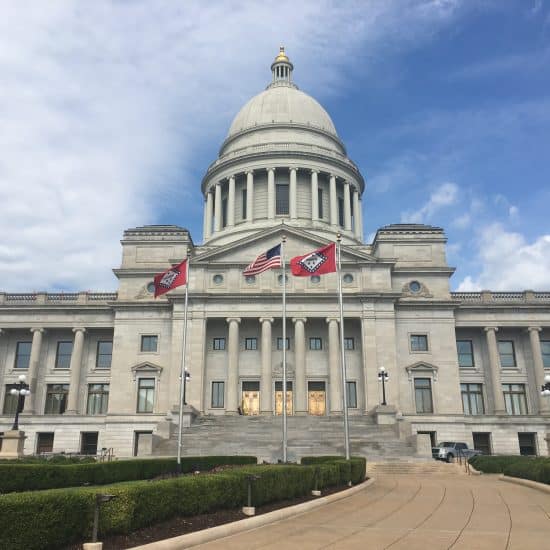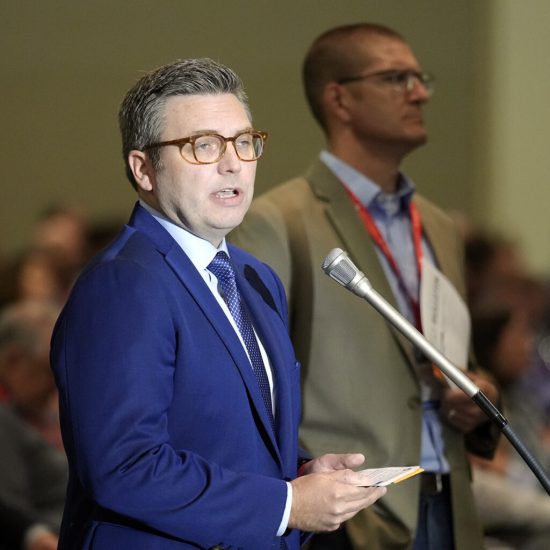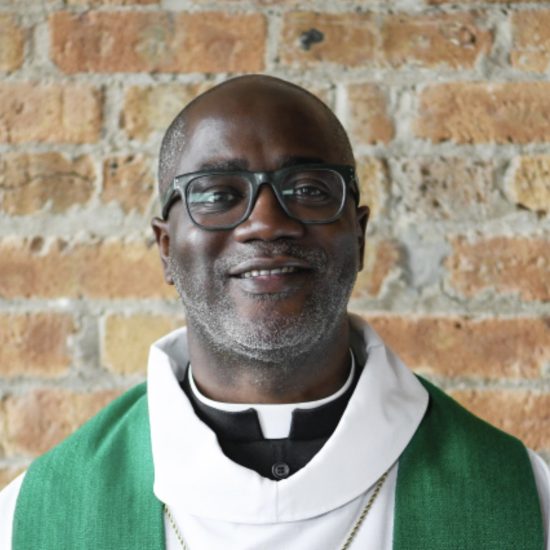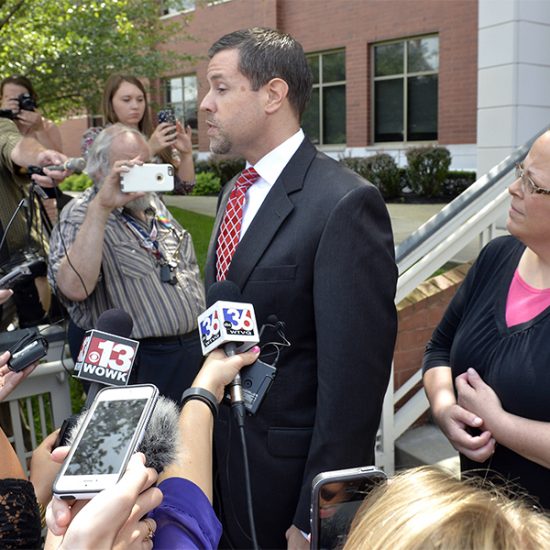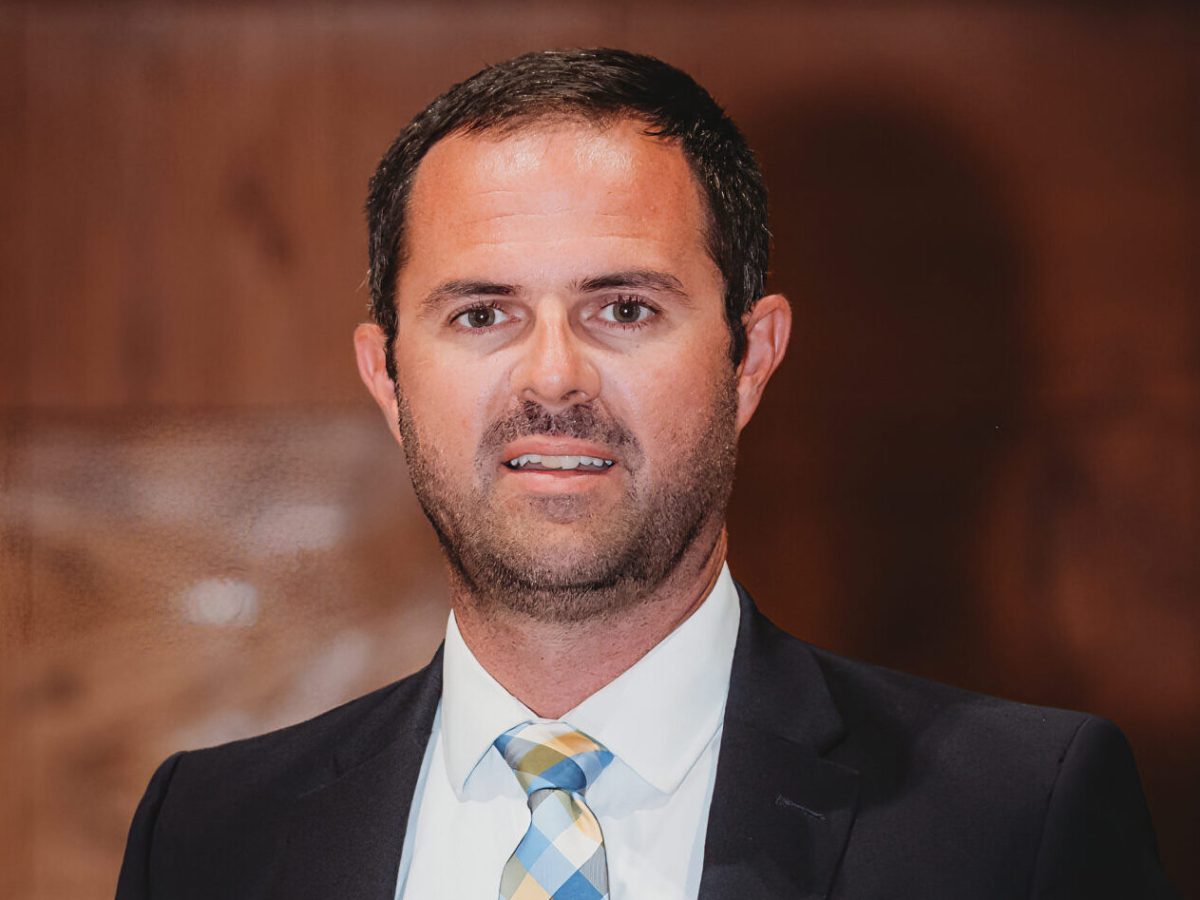
(RNS) — Ryan Burge, who for years juggled roles as a Baptist pastor, political scientist, and go-to source on America’s changing religious landscape, has a new gig.
On Friday (Aug. 1), Burge was named a professor of practice at the John C. Danforth Center on Religion and Politics at Washington University in St. Louis.
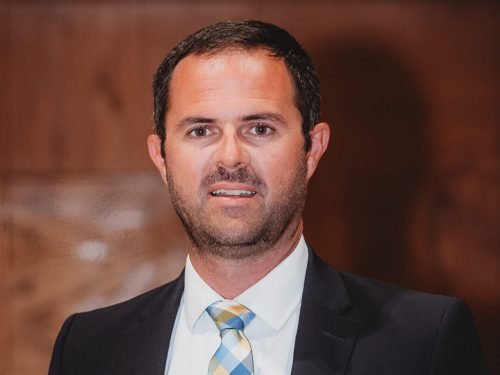
Ryan Burge. (Photo courtesy of Washington University in St. Louis)
Burge, who’d taught political science at Eastern Illinois University since 2012 and runs the popular Graphs About Religion newsletter, said the new role will allow him to spend less time in the classroom and more time focusing on educating the public about the changing role of religion in American life.
That’s something Burge, who has long had one foot in academia and one in the public square, thinks more scholars should be doing.
“I think we should be doing more public engagement,” he told RNS in a phone interview. “We’re doing the kind of work people care about.”
In his new role, Burge will continue to write his Substack and post on social media, take part in Danforth Center events, and teach some undergrad classes. He will also oversee what he called “flash polls” about religion in America — meant to gauge public opinion on important topics in real time.
“I want the conversation to be informed by data as it’s happening, not after the fact,” he said.
Burge said Abram Van Engen, who was named director of the Danforth Center earlier this year, approached him about the new role, which he said seemed tailor-made for him.
Established in 2010, the center is named after former U.S. Sen. John Danforth of Missouri, who was an Episcopal priest before entering politics.
Moving to the center did come with a cost, as Burge gave up a tenured role at his former university. But the move made too much sense to turn down.
“Whenever you figure out what God has made you good at — that’s what’s going to bring you happiness and joy,” said Burge, who pastored a small-town church in Illinois for years along with his role at Eastern Illinois. He also said the rise of social media and Substack made the move away from the classroom possible in a way that it was not before.
Burge, who specializes in turning religion survey data into bite-size graphs perfect for sharing on social media, said being able to talk with the public about the changing religious landscape has been “the greatest blessing of my life.”
In a press release, Van Engen said Burge brings “a new and further dimension to the Danforth Center’s many offerings and helps us connect across multiple disciplines.”
“We are thrilled to welcome him!” Van Engen said.
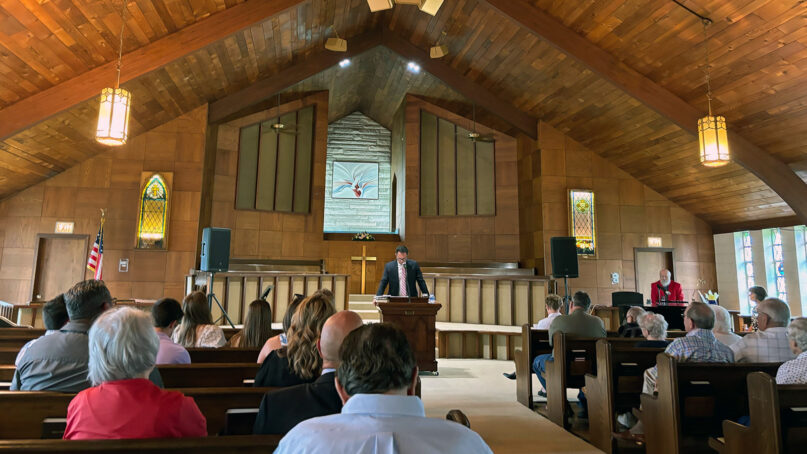
Pastor Ryan Burge speaks during the final worship service at First Baptist Church in Mount Vernon, Illinois, July 21, 2024. (RNS photo/Bob Smietana)
The past year has been filled with changes for Burge.
Last summer, the Baptist church he’d pastored held its final service — something he’s still not quite over dealing with. The chair of his department, a dear friend and work colleague, also retired last year. And Burge’s family lost their beloved dog.
“A lot of things that were in my life 18 months ago are gone,” he said. “Change is hard.”
A pastor at heart, Burge said he still sees God at work in his life, in a different way than when he was preaching on a regular basis. “I believe God set me up in a way to make this leap,” he said.
Burge, co-author of “The Great DeChurching” and author of “The Nones” and “The American Religious Landscape,” will also still write books. He has a new one coming out in January called “The Vanishing Church,” which will look at the decline of what he called “moderate congregations,” where people from different political parties were able to worship side by side.
Those kinds of congregations have begun to disappear in recent decades, especially with the decline of mainline Protestant denominations.
“The church used to be a great meeting place for rich and poor, blue collar and white collar, young and old,” he said. “Now it’s not. And I think we’re worse for it.”
He hopes that will change in the future. But it won’t be easy, he added, given the shrinking middle in America, where people who want to be more centrist get “run over by both sides.”
“I think that religion can be a force for good in American democracy,” he said. “One of the reasons that the political polarization is so bad in America is because religious polarization is so bad in America now.”

